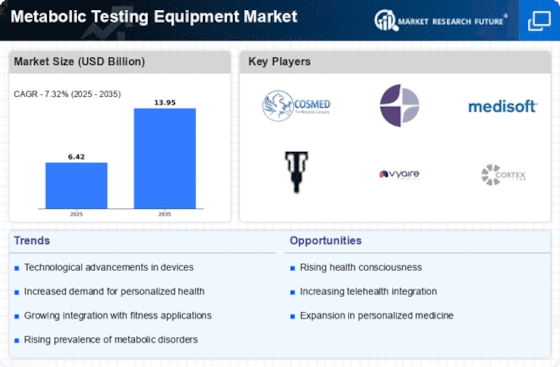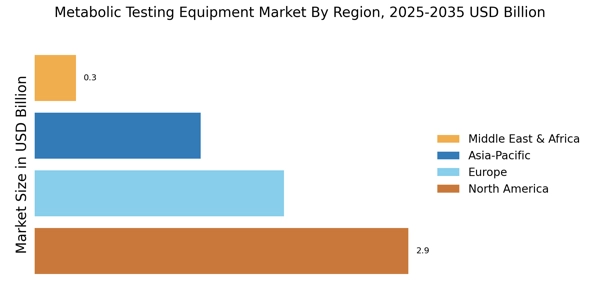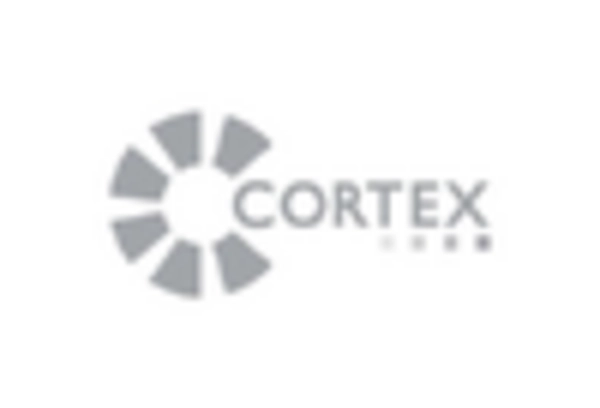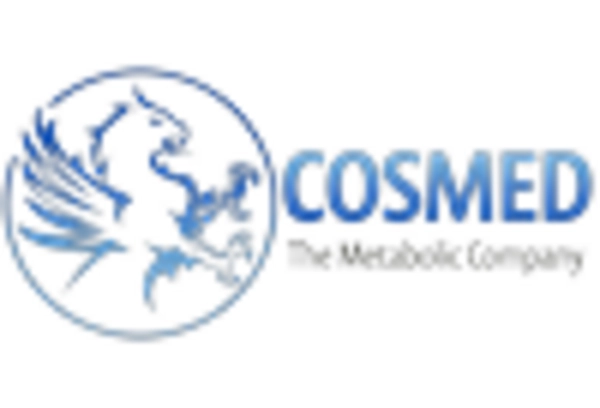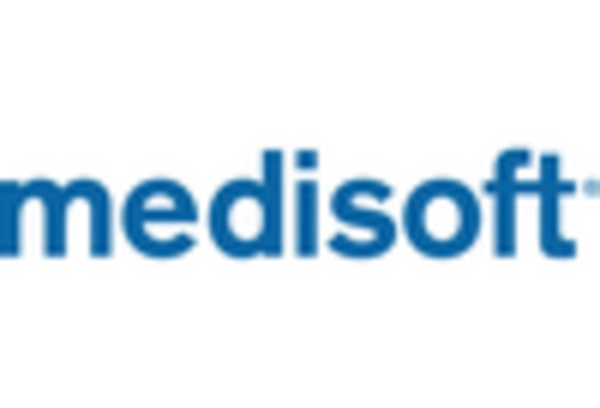Advancements in Technology
Technological advancements play a crucial role in shaping the Metabolic Testing Equipment Market. Innovations in metabolic testing devices, such as portable and non-invasive testing solutions, enhance the accessibility and efficiency of metabolic assessments. The integration of artificial intelligence and machine learning into these devices allows for more accurate data analysis and personalized health insights. As healthcare systems increasingly adopt these technologies, the market is likely to witness substantial growth. Furthermore, the introduction of cloud-based platforms for data management and analysis is expected to streamline operations, making metabolic testing more efficient and user-friendly.
Growing Focus on Preventive Healthcare
The shift towards preventive healthcare is significantly influencing the Metabolic Testing Equipment Market. As healthcare providers emphasize early detection and prevention of diseases, the demand for metabolic testing equipment is likely to rise. This trend is supported by an increasing awareness among individuals regarding the importance of maintaining metabolic health. Preventive measures, including regular metabolic assessments, are becoming integral to healthcare strategies. Consequently, the market for metabolic testing equipment is expected to expand as healthcare systems prioritize preventive care, leading to improved health outcomes and reduced healthcare costs.
Increase in Health and Fitness Awareness
The growing awareness of health and fitness among the population is a notable driver for the Metabolic Testing Equipment Market. As individuals become more conscious of their metabolic health, there is a rising demand for tools that provide insights into metabolic rates and overall health. Fitness enthusiasts and health-conscious individuals are increasingly seeking metabolic testing to optimize their performance and health outcomes. This trend is reflected in the increasing number of fitness centers and wellness programs that incorporate metabolic testing into their offerings. As a result, the market for metabolic testing equipment is poised for growth, catering to a more health-aware consumer base.
Rising Prevalence of Metabolic Disorders
The increasing incidence of metabolic disorders, such as obesity and diabetes, is a primary driver for the Metabolic Testing Equipment Market. According to recent data, the prevalence of obesity has nearly tripled since 1975, leading to a heightened demand for metabolic testing solutions. These disorders necessitate accurate metabolic assessments to guide treatment and management strategies. As healthcare providers seek to address these challenges, the market for metabolic testing equipment is expected to expand significantly. The need for early detection and personalized treatment plans further propels the demand for advanced metabolic testing technologies, indicating a robust growth trajectory for the industry.
Regulatory Support and Funding Initiatives
Regulatory support and funding initiatives are pivotal in driving the Metabolic Testing Equipment Market. Governments and health organizations are increasingly recognizing the importance of metabolic health, leading to the establishment of funding programs aimed at promoting research and development in this field. Such initiatives not only encourage innovation but also facilitate the adoption of advanced metabolic testing technologies in clinical settings. The support from regulatory bodies enhances the credibility of metabolic testing equipment, fostering trust among healthcare providers and patients alike. This favorable environment is likely to stimulate market growth, as more stakeholders invest in metabolic testing solutions.


